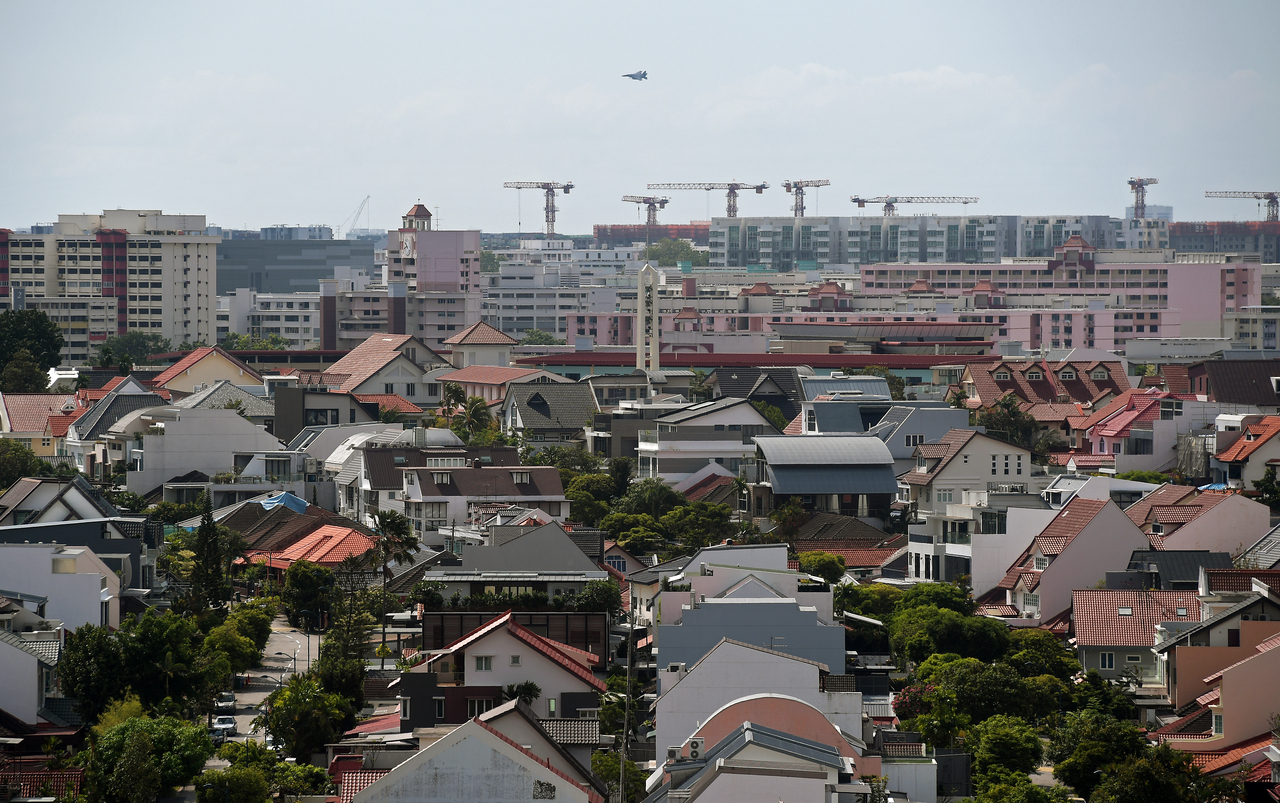Woman loses claim to 73 per cent share in $1.7m house on appeal
Sign up now: Get ST's newsletters delivered to your inbox

The appeal court found no clear evidence of an oral agreement that Ms Susan Yeow bought the terraced house in Jalan Rengkam with a close friend.
ST PHOTO: KUA CHEE SIONG
Follow topic:
SINGAPORE - A woman whose claim of a 73 per cent share in a $1.7 million house was upheld by the High Court last year saw the decision reversed on appeal before the Appellate Division of the High Court last month.
The three-judge panel of the appeal court found there was no clear evidence of an oral agreement at the time she bought the property with a close friend on which her claim was based.
Ms Susan Yeow had claimed that she and Mr Ravindaranath Ramasamy had jointly bought the house in 2008 as an investment, but placed the property under his sole name to "save costs" on stamp duties and property tax.
She further claimed the duo agreed to sell the house when the price rose to $3.5 million and to share the proceeds according to their contributions.
Ms Yeow said her total contribution was $833,600 and Mr Ramasamy's $310,000, based on monthly payments she made to the latter to settle the mortgage.
Currently the owner of a consultancy business, Ms Yeow has known Mr Ramasamy since February 1993 when they were both students in a Master of Business Administration distance learning programme. Afterwards, they kept in touch and he continued to mentor her.
However, more than a decade later, in the course of divorce proceedings, Mr Ramasamy's wife staked a claim on the Jalan Rengkam terraced house, which she alleged he had bought with the sales proceeds of their matrimonial Housing Board flat.
Although Mr Ramasamy was named as a defendant in the lawsuit, he agreed with Ms Yeow that he was holding her share in the house on trust for her.
Last April, the High Court ruled in favour of Ms Yeow after studying the evidence, and found that she held a 73 per cent share of the house, while Mr Ramasamy had a 27 per cent stake.
Mr Ramasamy's wife, Madam Vishnumangalam Renuka, represented by lawyers Seenivasan Lalita and Lim Ying Ying, then appealed to the Appellate Division of the High Court, which made clear that "an appellate court should be slow to disturb findings of fact by the court of first instance".
But the appellate court found the judge had placed too much weight on certain evidence, without considering or giving due weight to other relevant evidence in concluding that an oral agreement existed between the pair.
Writing on the court's behalf, Judge of the Appellate Division Woo Bih Li said undue emphasis had been placed on Ms Yeow's monthly money transfers to Mr Ramasamy as evidence of an agreement between them.
It said such transfers were not necessarily part of their alleged oral agreement and could be for some other purpose, noting Ms Yeow had been lending significant sums of money to Mr Ramasamy, for instance.
Among other things, the court noted they had agreed the purchase was a joint investment but Mr Ramasamy's affidavits in his divorce proceedings with Madam Renuka contradicted this central feature. "Ultimately, there are too many inconsistencies in the evidence of Ms Yeow and Mr Ramasamy to support her claim to any share in the property," said the court.
The court ordered that she pay $35,000 in costs to the Legal Aid Bureau, which assisted Madam Renuka.
The court added that Ms Yeow may still bring a personal claim against Mr Ramasamy if the sums were loans made to him.
"Mr Ramasamy is not without substantial assets since he remains the owner of the entire property (subject to any claim of (his wife) in the divorce proceedings)."
It is understood the house is now worth about $3 million.

